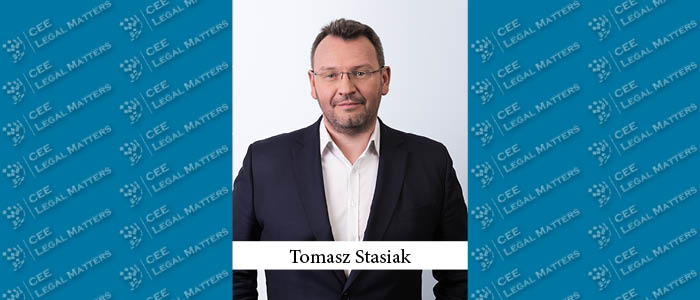In the nineties, young lawyers like me often felt annoyed by partners traveling thousands of kilometers to “new Europe” to explain to us basic concepts of real estate – back then it was a sign of a cultural gap between the leaders of globalization.
What we – CEE real estate professionals – did not understand at the time was that while some concepts (e.g., triple net lease) had been known in “the west” for decades, others (such as W&I insurance) were new everywhere. It was not easy to distinguish between the consequences of real estate becoming a fascinating new global asset class and the oversimplified copying solutions between countries not always reaching the optimal solution for the clients. In today’s interconnected world, clients carrying out projects across continents more than ever, expect lawyers to speak one language, whichever part of the world they go to, and assume that new business concepts will be rolled out between jurisdictions in the most efficient way. Therefore, knowledge sharing and multijurisdictional discussions are becoming key to success in the world of the legal profession. However, it would be wrong to think that standardized documentation produced by AI will dominate our industry.
These have been a challenging couple of years for the real estate industry and professional services providers. Nevertheless, within the obstacles lie opportunities waiting to be discovered. The times of quick flips are gone (at least for now), along with standard copy-paste documentation. Today’s clients expect a more personalized approach, one that comprehends not only the industry perspective but also their unique individual needs. This is especially true for non-industry investors or those arriving in CEE only now, thanks to the relocation of core institutional money. But even core funds – depending on where they are in the funding cycle or the situation of their sister business – show major variations in approach. Lawyers can once again be guides and value creators, just as they were twenty years ago.
And major challenges for the real estate sector have yet to arrive – three strategic ones featuring: the implementation of the Energy Performance Building Directive IV, rebuilding Ukraine with a huge demand for labor force, materials, money, and know-how, and the technical deterioration of post-Soviet residential properties. Each of them calls for legal experts to demonstrate leadership.
The simple introduction of European energy efficiency standards by lawmakers is just half of the trick. Industry professionals must identify bottlenecks, including legal ones, and suggest changes to national laws. For example, should builders be more conscious of carbon emissions during the construction phase? Are they permitted to build with recycled materials? Do construction standards allow for the possibility of repurposing old office buildings into affordable housing without tearing them down to the ground? How to permit these without compromising residential construction standards? And how to keep costs under control, protect the environment and at the same time build enough shelters (taking the Finnish example)? In this context, is getting rid of underground pedestrian crossings a good idea for town planners (as we see in some capital cities in the region)? There are many fascinating puzzles that lawyers may be instrumental in solving.
The legal framework for rebuilding Ukraine is yet to come, but some jurisdictions (like Poland) are already offering some support for businesses interested in opportunities in Ukraine. As part of planning future initiatives even today, investors can already start recruiting among Ukrainians living in Romania, Poland, or elsewhere in CEE. Human capital built now and legal expertise derived from past experience will be crucial in navigating complex regulatory frameworks, facilitating investments, and ensuring compliance with international standards in the recovery and development of Ukraine.
Millions of individually-owned apartments are aging across CEE without a clear legal path for private owners to reach a consensus on their future (whether to sell, refurbish, or redevelop them). While the primary focus of governments has been on putting up new builds, the issue of renewing residential buildings slowly becomes a critical concern. Also due to ESG considerations in balancing the pros and cons of refurbishing versus replacing.
Given the novelty but also the region-wide scale of these challenges, cooperation and exchange of knowledge between lawyers in CEE is becoming increasingly important. Our motto is “One Region, One Firm,” specifically because we tackle them from a regional perspective – I am confident that both we and the market as a whole will live up to the challenge.
By Tomasz Stasiak, Co-Managing Partner, Wolf Theiss Poland
This article was originally published in Issue 11.2 of the CEE Legal Matters Magazine. If you would like to receive a hard copy of the magazine, you can subscribe here.














